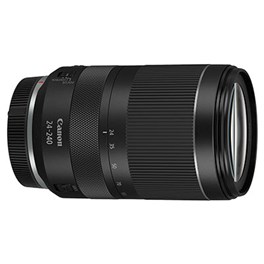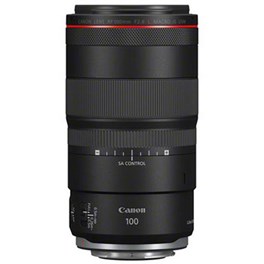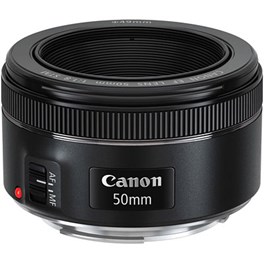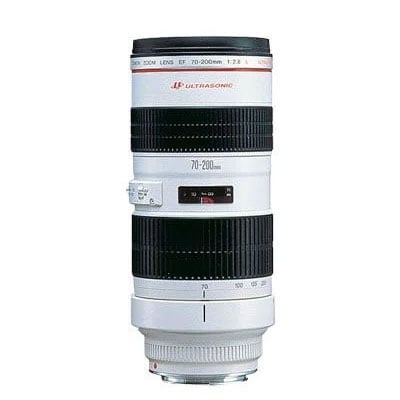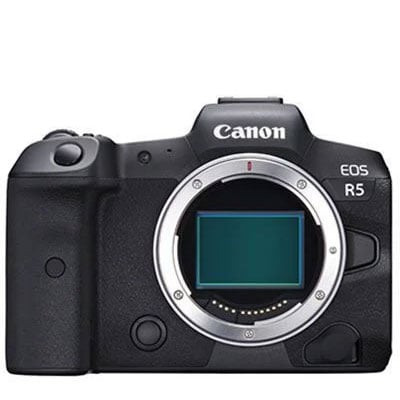
These are, in our view, the best Canon lenses to buy right now for mirrorless and DSLR cameras. Whether you’re using new-fangled RF or old-school EF, Canon has a dazzling selection of lenses to tempt you, from zooms to primes, wide-angles to telephotos, and everything in between.
We haven’t simply compiled a list of the top professional lenses, as these would be too expensive and unnecessary for most users. Instead, we’ve picked a range of lenses at a range of price points, each one of which has seriously impressed our testing team of photographic and video experts. We think every lens on this list delivers exceptional value for money, and while it’s unlikely that every lens on this list will be to your taste, we’re confident that you’ll be able to find something here to suit your style of shooting.
Shopping for a Canon camera too? Check out our guide to the best Canon cameras, where we cover mirrorless and DSLR options. Otherwise, let’s get into it and count off the best lenses for Canon cameras in 2025…
What's coming up:
Best Canon lens for portraits: Canon RF 135mm f1.8 L IS USM Lens
Best all-in-one Canon lens: Canon RF 24-240mm f4-6.3 IS USM Lens
Best Canon lens for wildlife: Canon RF 100-500mm f4.5-7.1L IS USM Lens
Best Canon lens for beginners: Canon RF-S 18-150mm f3.5-6.3 IS STM Lens
Best Canon lens for close-ups: Canon RF 100mm f2.8 L Macro IS USM Lens
Best affordable Canon mirrorless lens: Canon RF 35mm f1.8 IS Macro STM
Best APS-C lens for video: Canon RF-S 14-30mm f4-6.3 IS STM PZ
Best full-frame lens for video: Canon RF 20mm f1.4 L VCM Lens
Best affordable Canon DSLR lens: Canon EF 50mm f1.8 STM Lens
Best mid-range Canon DSLR lens: Canon EF 70-300mm f4-5.6 IS II USM Lens
Best Canon lens for portraits:
|
Aperture: Wide and fast f1.8 Stabilisation: Up to 5.5 stops IS (8 stops with IBIS) Autofocus: Nano USM for fast, silent focusing Optics: L-series quality with UD elements Build: Weather-sealed |
Pros:
Cons:
|
This lens is an update to a much loved DSLR lens, the EF 135mm f/2L USM. It delivers not just a little extra latitude in the aperture, with f/1.8 rather than f/2, but also adds built-in stabilisation – and this makes it much more practical to shoot with handheld.
The tight 135mm focal length delivers a compressed field of view, forcing you to hone in on your subject and strip away unnecessary elements from images. The tight, flattering focal length is brilliant for portraits, particularly head-and-shoulders shots like actor headshots. Plus, with a 0.7m minimum focusing distance, this is also a solid lens for close-ups and still life, though if that’s a major interest of yours then you may want to consider the RF 100mm f2.8 L Macro IS USM featured further down this list.
The lens is built to L series standards, meaning it has a solid outer chassis and extensive weatherproofing. Optical performance, naturally, is absolutely stellar, delivering sublime central sharpness, luscious bokeh, and crisp separation between subject and background.
Best all-in-one Canon lens:
|
Zoom Range: 10x zoom from wide to telephoto Stabilisation: Up to 5 stops IS Autofocus: Nano USM for smooth, fast focusing Portability: Compact and lightweight design Video: Quiet operation ideal for video |
Pros:
Cons:
|
This is a highly versatile lens that caters to a wide range of photographic needs. Its extensive zoom range from 24mm to 240mm allows photographers to capture everything from sweeping landscapes to detailed close-ups, making it an excellent all-in-one solution for travel and everyday photography. Focusing is smooth, fast and accurate — you should have no problem nailing even tricky moving subjects like wildlife, and focus transitions are also nice and smooth, which is useful for video.
It’s equipped with a built-in 5-stop image stabilisation system, which is particularly useful for handheld shooting as it helps you keep control of the lens while working at the outer reaches of the zoom range and still get sharp images. Despite its big range, the lens is still fairly compact, weighing in at a reasonable 750g, making it a good option for travelling light. One thing to note however is that it’s not weather-sealed, so you’ll have to be careful about the conditions in which you use it.
Best Canon lens for wildlife:
|
Zoom Range: 100-500mm super-telephoto Stabilisation: Up to 5 stops IS Autofocus: Dual Nano USM for fast, accurate focusing Optics: L-series quality with advanced coatings Build: Weather-sealed for durability |
Pros:
Cons:
|
A 100-400mm lens is a popular thing among pro and amateur photographers alike. Here, Canon goes one better — or one hundred better, depending on how you look at it — and produces the RF 100-500mm f4.5-7.1L IS USM.
Great for all sorts of applications thanks to its generous zoom range, the RF 100-500mm still manages to be relatively lightweight. It’s equipped with a five-stop stabilisation system, as well as the brilliant Dual Nano USM autofocus that is exceptionally fast and accurate. Aberrations and distortion are controlled well throughout the zoom range, giving you clear and sharp images at every focal length setting.
You do have to deal with a pretty narrow maximum aperture, especially at the long end of the zoom — something of an inevitable price to pay for keeping a lens like this at a reasonable size, weight and price. While this can make things difficult in low light, having the aforementioned five-stop stabilisation system is helpful as it allows you to use slower shutter speeds when shooting handheld, and still get sharp images.
Best Canon lens for beginners:
|
Zoom Range: Versatile 18-150mm for APS-C Stabilisation: Up to 4.5 stops IS (6.5 stops with IBIS) Autofocus: STM motor for smooth, silent focus Macro: 0.59x magnification for close-ups Portability: Lightweight and travel-friendly |
Pros:
Cons:
|
If you’re using one of Canon’s APS-C mirrorless cameras like the EOS R100, then it’s a good idea to use dedicated RF-S lenses where possible, as these will balance better with the smaller bodies. The Canon RF-S 18-150mm f3.5-6.3 IS STM is a good one-size-fits-all lens, covering a reasonably wide-angle focal length to powerful telephoto; its equivalent focal range is 29mm to 240mm (remember that the smaller sensor incurs a crop factor).
It’s also equipped with image stabilisation; this is especially good news for users of Canon’s APS-C cameras, which don’t tend to have in-body stabilisation systems. Focusing is reliably snappy thanks to the stepping motor autofocus system, and if you switch to manual focus mode, you get a decent 0.59x magnification factor that provides some macro capability. It’s a lens to do pretty much everything, and the best part is, it won’t cost the earth. If you’re using an APS-C camera and you don’t have budget for more than one lens, this is a good choice.
Best Canon lens for close-ups:
|
Aperture: Fast f2.8 for depth control Macro: 1.4x magnification for extreme close-ups Stabilisation: Up to 5 stops IS (8 stops with IBIS) Autofocus: Dual Nano USM for precise focusing Optics: L-series quality with Super Spectra Coating |
Pros:
Cons:
|
Canon is one of the most impressively innovative manufacturers when it comes to both cameras and lenses, and often gives us something we’ve never seen before. Take the RF 100mm f2.8 L Macro IS USM, which may seem fairly standard at first glance — a telephoto prime with close-up capabilities. However, it includes a unique feature in the form of the SA Control ring.
Short for “spherical aberration control”, this ring allows you to manipulate the quality of background bokeh or create a soft-focus effect in the foreground of your images. With the ring set to zero and the aperture at a reasonably wide setting, you get beautiful, crisp images with well-delineated foreground subjects and lovely background bokeh. By twisting the ring, you can create a super-dreamy look in the background or soften your subject for an overall softer image.
Macro performance is also obviously brilliant, with details rendered in spectacular quality. The ergonomics are well pitched, with key controls falling in natural-feeling positions, and ultimately, it’s just an enjoyable lens to use.
Best affordable Canon mirrorless lens:
|
Aperture: Bright f1.8 for low light and bokeh Macro: 0.5x magnification for close-up details Stabilisation: Up to 5 stops IS Autofocus: STM motor for smooth, quiet focus Size: Compact and lightweight for everyday use |
Pros:
Cons:
|
Many photographers swear by a 35mm lens for day-to-day work, the wider focal length providing a generous field of view without overly distorting a scene. For Canon mirrorless users, the Canon RF 35mm f1.8 IS Macro STM is a good bet — it’s a fairly inexpensive 35mm lens that offers dependably solid image quality in a range of situations. While it’s not a “true” macro lens, its half-size reproduction does a good job with close-ups, and it comes at a much more affordable price than a proper macro lens.
There is a bit of audible focusing noise, which might give someone pause if they were thinking of using the lens for video. Otherwise, there’s not a lot to fault about this lens. It’s lightweight, it offers a generous F1.8 maximum aperture that’s great for low light and bokeh, and it provides built-in hybrid image stabilisation with about three stops’ effectiveness.
Best APS-C lens for video:
|
Pros:
Cons:
|
Focal Range: 14–30 mm (22–48 mm full-frame equivalent) Power Zoom: Internal motorised zoom with two speeds Minimum Focus Distance: 15 cm Image Stabilisation: Optical IS up to 5.5 stops (7.5 stops with compatible IBIS) Size & Weight: 62 mm long, 69.6 mm diameter, 181 g |
This lens was released as the kit lens with the video-focused EOS R50 V, meaning it’s designed specifically both for video and for Canon’s APS-C range. Brilliant for vloggers, it offers a built-in Power Zoom mechanism that allows you to electronically move through the 22–48mm equivalent zoom range at one of 15 selectable speeds, smooth and stable in just the way you need for video.
The lens is optically stabilised (when paired with in-camera IBIS it can manage up to 7.5 stops of effective compensation) and its non-extending design means it balances well on gimbals and rigs. With a minimum focusing distance of 15cm, it’s also rather nifty for close-up work, making it a good choice for shooting products, in video or stills. Want a lightweight, affordable and capable lens for vlogging on an APS-C Canon camera? This is a lens that ticks every one of those boxes with gusto.
Best full-frame lens for video:
|
Pros:
Cons:
|
Maximum Aperture: Bright f1.4 - f16 Autofocus: Dual-drive system with VCM + Nano USM for fast, silent, cinematic focus Minimum Focus Distance: 0.20 m Optical Design: 15 elements in 11 groups incl. BR, Super‑UD, UD; 11‑blade circular diaphragm Size & Weight: 99.3 × 76.5 mm, 519 g; 67 mm filter thread; weather-sealed with fluorine coating |
Canon shooters had been expressing their desire for more F1.4 RF primes for some time — and the manufacturer well and truly obliged with this spectacular lens. The widest prime in the range with such a generous maximum aperture, the Canon RF 20mm f1.4 L VCM delivers an expansive field of view that’s perfect for general-purpose video shooting. Its optical construction of 15 elements in 11 groups delivers superb optical quality, and its click-free Iris aperture ring ensures smooth exposure changes. That aforementioned lovely F1.4 aperture also delivers not only great low-light performance, but also a high degree of control over depth of field.
The lens has been optimised to balance well on gimbals and rigs, and is also built to the exacting L-series standard of quality. This means it’s dust-sealed and moisture-sealed, with a fluorine coating on the front element to repel water, oil and dirt — all of which makes it a lens that can handle demanding location shoots. This is a lens for serious video professionals, delivering exceptional image quality and highly optimised performance.
Best affordable Canon DSLR lens:
|
Aperture: Fast f1.8 for soft background blur Autofocus: STM motor for smooth, silent operation Optics: Optimised lens coatings for sharpness Build: Compact and lightweight design Value: Affordable and versatile prime lens |
Pros:
Cons:
|
The so-called “nifty-fifty” has a deserved reputation as one of the best walk-around focal lengths there is. It roughly equates to the angle of view of a human eye, and so on full-frame it produces images with a naturalistic, documentary-style look that works brilliantly for reportage and documentary-style shooting, not to mention street photography.
The Canon EF 50mm f1.8 STM Lens, made for Canon’s DSLR range, is a beloved example, providing a superb balance between affordability and quality, with a generous f/1.8 aperture, a 7-bladed diaphragm for smooth bokeh, and Super Spectra coating to reduce ghosting and flare. The STM motor also means focusing is quick and quiet, so you have everything you need for a day’s photographic adventure.
In our view, it’s a much better starter lens than the kinds of 18-55mm lens that beginner DSLRs tend to get bundled with. Sure, you don’t get a zoom, but you get a lens that’s capable of much more expressive images, and one that teaches you to move your feet and think intelligently about where you position yourself to get a shot. No bad thing!
Best mid-range Canon DSLR lens:
|
Zoom Range: 70-300mm telephoto reach Stabilisation: Up to 4 stops IS Autofocus: Nano USM for fast, smooth focusing Display: Built-in digital information display Portability: Compact for a telephoto zoom |
Pros:
Cons:
|
A 70-200mm F2.8 lens is considered to be part of the professional holy “trinity”, providing a flexible telephoto zoom range that’s useful for a host of subjects. Of course, these lenses tend to be priced at a level that means they’re not an option for everyone, and so more affordable alternatives tend to spring up. One such alternative is the Canon EF 70-300mm f4-5.6 IS II USM, a zoom for Canon’s DSLR range that puts telephoto flexibility in a more affordable package.
Not only this, but as you may have already noticed, it also offers a longer focal range, going up to 300mm rather than 200mm, allowing you to get closer to the action. A built-in stabilisation system also makes the telephoto end of the lens much more usable handheld. The inevitable trade-off is that the maximum aperture is variable, not constant, and narrower than it would be on a professional lens, running from F4 to F5.6 as you zoom in.

FAQs
What makes Canon camera lenses unique?
Canon camera lenses are renowned for their high-quality optics, innovative technologies, and robust build. They often feature advanced lens coatings such as Super Spectra and Subwavelength Structure Coating (SWC) that minimise reflections, ghosting, and flare, resulting in clearer and more vibrant images.
How do I choose the right Canon lens for my needs?
Choosing the right Canon lens depends on your specific photography needs. It’s best to think about focal length, aperture size, and image stabilisation. For landscape photography, wide-angle lenses are ideal, while portrait photographers often prefer lenses with a large aperture for beautiful background blur. For sports and wildlife, telephoto lenses with image stabilisation help capture distant subjects with clarity. It’s safe to say that there is a Canon lens for everyone.
What is the difference between Canon EF and RF lenses?
Canon EF lenses are designed for DSLR cameras with a full-frame or APS-C sensor, while RF lenses are specifically made for Canon's mirrorless cameras with the RF mount.
Why is lens image stabilisation important?
Image stabilisation (IS) is crucial for reducing camera shake, especially in low-light conditions or when using long focal lengths, ensuring sharper images. Canon lenses often feature Optical Image Stabilisation (OIS), which compensates for camera movement by shifting lens elements.
How do Canon's lens coatings enhance image quality?
Canon uses several proprietary lens coatings to enhance image quality. Super Spectra Coating (SSC) is applied to reduce internal reflections, ghosting, and flare, which can degrade image contrast and colour fidelity. The Subwavelength Structure Coating (SWC) further minimises flare and ghosting, particularly in challenging lighting conditions.
How do we decide?
Our in-house photography experts, store staff and partners all work collaboratively to pour over our guides and tips articles. We also consider emerging trends and customer feedback to make sure our guides are always up-to-date and reflective of what people are truly looking for. By curating only the best products, our guides provide trustworthy recommendations, making it easier for customers to make informed choices with confidence.
If you would like more advice on any purchase our contact centre staff are here to help. Alternatively, you can reach us via email or social media. And don't forget. If you were to purchase anything based on our recommendations you'll be covered by our full returns policy
Sign up for our newsletter today!
- Subscribe for exclusive discounts and special offers
- Receive our monthly content roundups
- Get the latest news and know-how from our experts


